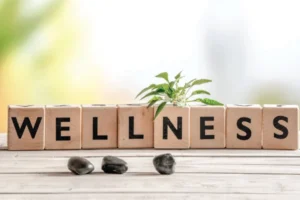In today’s fast-paced world, people are increasingly focusing on health and lifestyle. Maintaining daily well-being isn’t just about occasional exercise or nutritious meals; it’s about making small, incremental choices that ultimately lead to a healthier life. Maintaining a balanced daily routine and mindful habits can truly make you feel better, both physically and mentally. Anyone can increase their energy, reduce stress, and create a better future by following simple, daily health tips without major changes.
Why a Balanced Diet Is Crucial for Daily Well-Being
One of the most important ways to stay healthy is to eat healthily. Your diet directly impacts your mood, energy levels, and long-term health. A balanced diet with fruits, vegetables, whole grains, lean meats, and healthy fats provides your body with the nutrients it needs to function optimally. Instead of loading up on processed or fast foods, make smart dietary choices, like eating plenty of fresh fruits and vegetables and drinking enough water, to improve your digestion and overall health. Small changes, like cooking at home or cutting down on sugary drinks, can help you become healthier.
Stay Active Every Day
Being active every day is crucial for a healthy lifestyle, but that doesn’t mean you have to do intense workouts or spend hours at the gym. Walking, stretching, climbing stairs, or doing moderate exercises at home are all simple activities that can have significant effects. Consistency is better than intense exercise. Even 20 to 30 minutes of daily activity can improve circulation, boost your energy, and lower your stress levels. Exercise also helps you maintain a healthy weight and strengthen your immune system, which is crucial for your long-term health.
Prioritize Mental Health and Relaxation
Daily well-being isn’t just about physical health; it also means maintaining your mental health. Stress and anxiety are common problems in today’s busy society, and ignoring your mental health can make you feel worse overall. Mindfulness, meditation, or simple breathing techniques can help you relax. Taking a break from screens, spending time outdoors, or pursuing a hobby can also improve your mood. Prioritizing your mental health can increase your resilience and help people better cope with daily challenges.
Good Sleep is a Healthy Habit
One of the most important components of daily well-being is adequate sleep. Many people don’t realize how important it is to get seven to eight hours of good sleep every night. Sleep helps the body heal, recover, and prepare for the next day. Lack of sleep can leave you feeling tired and irritable and can lead to long-term health problems, including a weakened immune system and difficulty concentrating. Setting a consistent bedtime, removing electronics before bed, and creating a calm sleep environment can significantly improve sleep quality and overall well-being.
Water and its Importance for Health
Water is a fundamental and essential component of maintaining good health. Drinking enough water helps maintain a constant body temperature, improve digestion, and maintain a steady energy level throughout the day. Many people only realize they’re dehydrated when they feel tired or have a headache. Staying hydrated is easy, including carrying a water bottle, drinking herbal teas, and choosing water over sugary drinks. Drinking enough water is good for your skin, kidneys, and overall health.
Building Good Social Connections
Connecting with others is a key factor in maintaining good health. Building strong social connections with family, friends, or neighbors can help you feel better and reduce stress. Spending time with loved ones, sharing experiences, and having deep conversations can make you happier and more energetic. Positive social connections also motivate people to stay healthy and balanced. Surrounding yourself with supportive, positive people is crucial for your long-term health.
Practicing Self-Care Daily
People often consider self-care to be a luxury, but it’s actually crucial for maintaining your daily well-being. Making time for yourself—whether it’s reading, getting outside, taking care of your skin, or simply relaxing—can help you recharge and stay balanced. Setting boundaries, saying no when necessary, and prioritizing activities you enjoy are all part of self-care. Taking good care of yourself every day can help you avoid burnout and make you more resilient to daily tasks.
Develop a Regular Routine
The key to optimal health lies in consistency. A routine—including a balanced diet, regular exercise, adequate sleep, and relaxation—helps you maintain a stable and balanced life. Following a routine can help you manage stress and ensure you don’t neglect important aspects of well-being. Over time, these habits become second nature, leading to long-term benefits and a higher quality of life. A sustained healthy lifestyle is more effective than short-term efforts or major lifestyle changes.
Conclusion
Daily well-being means making small, conscious choices that lead to a better and happier life. Everyone can improve their health by focusing on their mental health, getting enough sleep, staying hydrated, eating a balanced diet, and maintaining healthy relationships. Staying healthy is easier when you avoid things that harm your health and take excellent care of yourself. Being healthy isn’t difficult; it’s simply about developing basic daily habits that are beneficial for your body and mind. Your efforts will gradually lead to a healthier lifestyle.
FAQs
1. What should you do to improve your daily health?
The first step is to pay attention to your daily behavior and make small, lasting adjustments, such as improving your diet, drinking more water, or getting some light exercise.
2. How many hours of sleep do you need to stay healthy?
Most people need seven to eight hours of quality sleep per night to stay healthy and perform at their best.
3. Do activities like walking count as exercise?
Yes, regular walking and other light exercise can be beneficial.
4. Why is staying hydrated so important for your health?
Drinking enough water aids digestion, replenishes energy, keeps your skin healthy, and keeps your body functioning properly. Even mild dehydration can make you tired and make it harder to concentrate.
5. How can I manage stress and feel better?
Mindfulness, meditation, breathing exercises, or hobbies can help reduce stress and improve your mental well-being.




